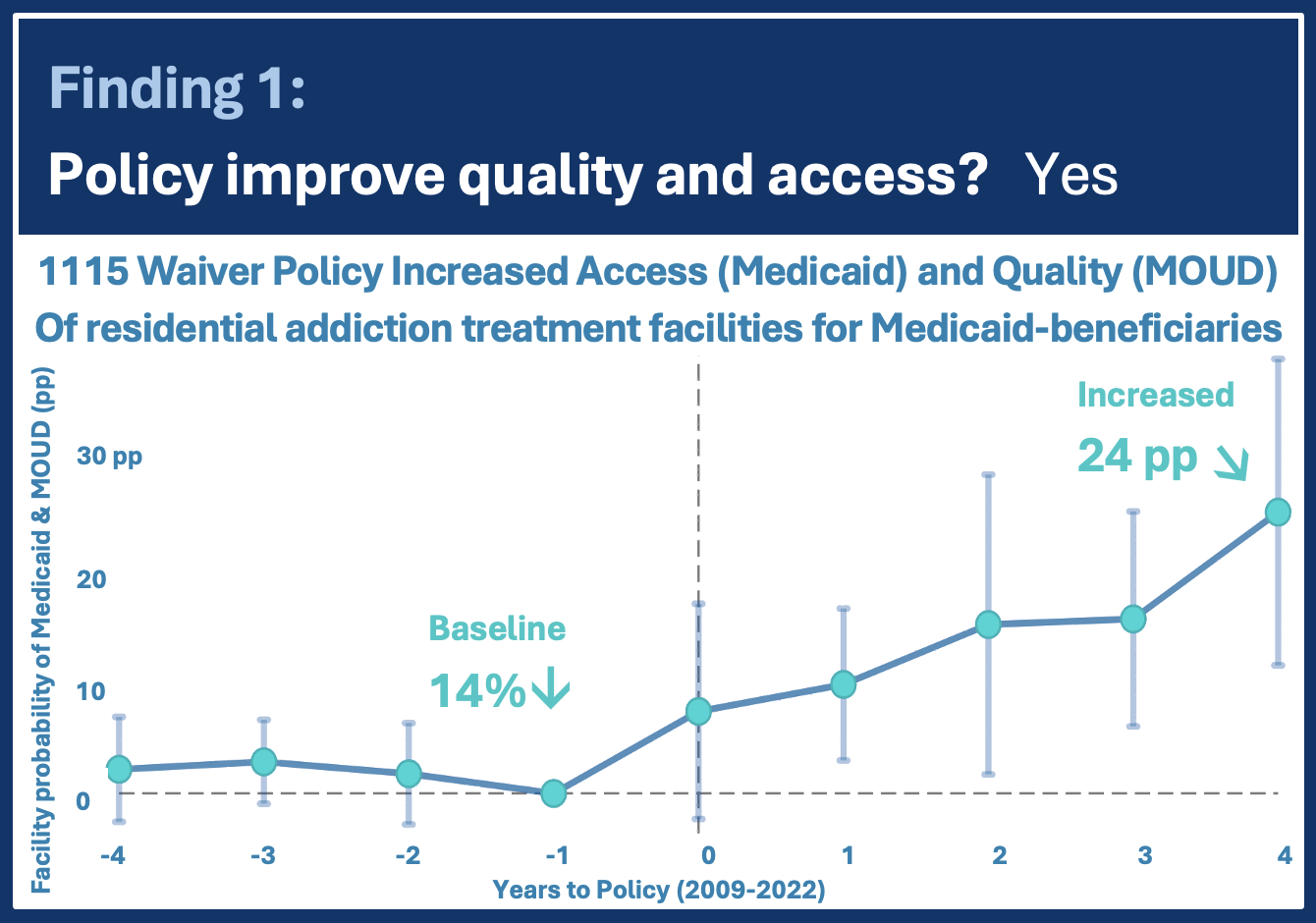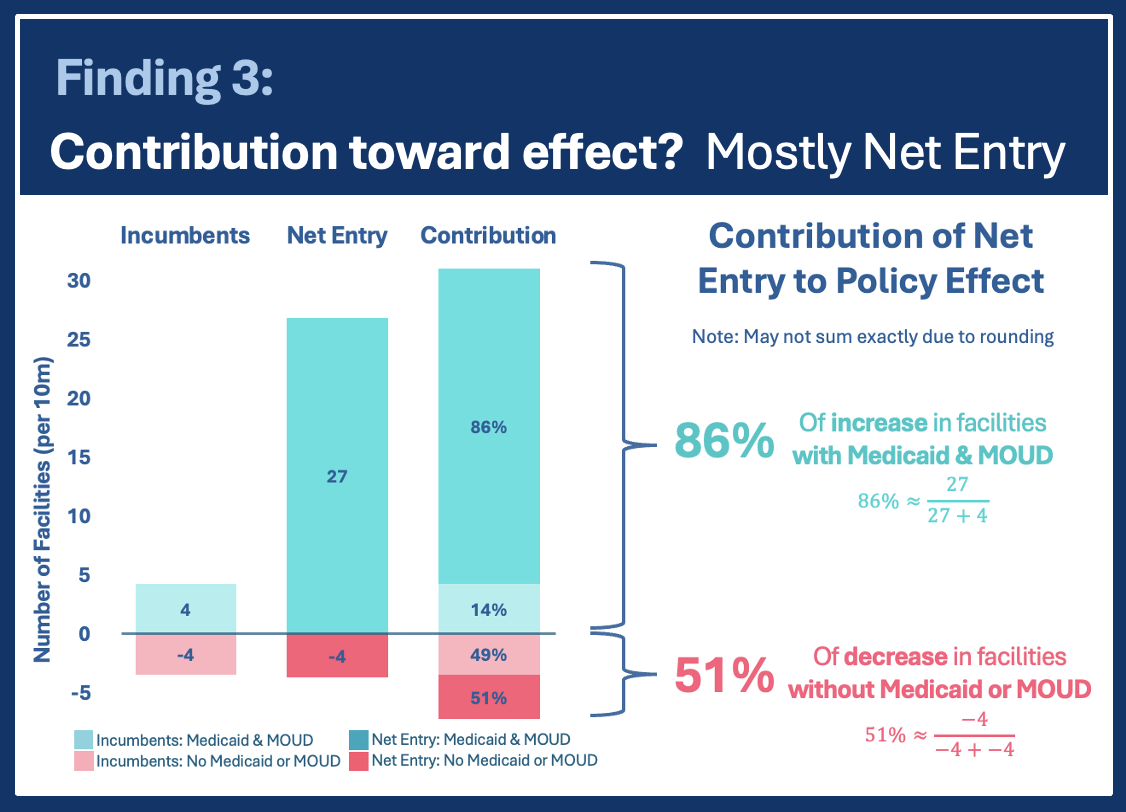Reconsidering How Policies Can “Work”: Role of Facility Entry and Exit in Addiction Treatment Access and Quality*
with Helen Newton, Chima Ndumele, David Fiellin, and Susan Busch.
Manuscript Invited for Submission to Health Affairs
For an extension of this work with implications for racial equity, see here.
This paper examines how payment policy can shape provider behavior and market composition. The question is studied in the context of a Medicaid policy change in the U.S. addiction treatment system, which is characterized by substantial unmet need for evidence-based services. Using a quasi-experimental difference-in-differences framework, this study evaluates the effects of the 1115 Medicaid Substance Use Disorder IMD Waiver policy on residential addiction treatment access and quality for Medicaid beneficiaries. Four years after the policy, the percentage of facilities offering evidence-based services to Medicaid beneficiaries increased by 24 percentage points from a baseline of 14%. However, a decomposition shows that within-facility changes only contributed to 14% of these improvements, with 86% of the policy effect driven by facility entry and exit dynamics. New facilities entering the market were more likely to accept Medicaid payments (access) and provide evidence-based services (quality), while facilities without these measures were more likely to close. Within facilities operating throughout the study period, access improved, but quality did not. These findings highlight that policies can affect both the behavior of existing stakeholders and the composition of stakeholders participating in the market, and that the latter has the potential to accelerate or undermine policy effects. This study contributes to broadening the scope of how policies can be considered to “work” in healthcare policy design and evaluation, especially when provider behavior may be “sticky” and resistant to change.
*This work received funding from a National Institutes of Drug Abuse Dissertation Award (R36DA058877), National Institutes of Drug Abuse Diversity Supplement (R01DA057789), and the Agency for Healthcare Research and Quality Training Award (T32HS017589).



